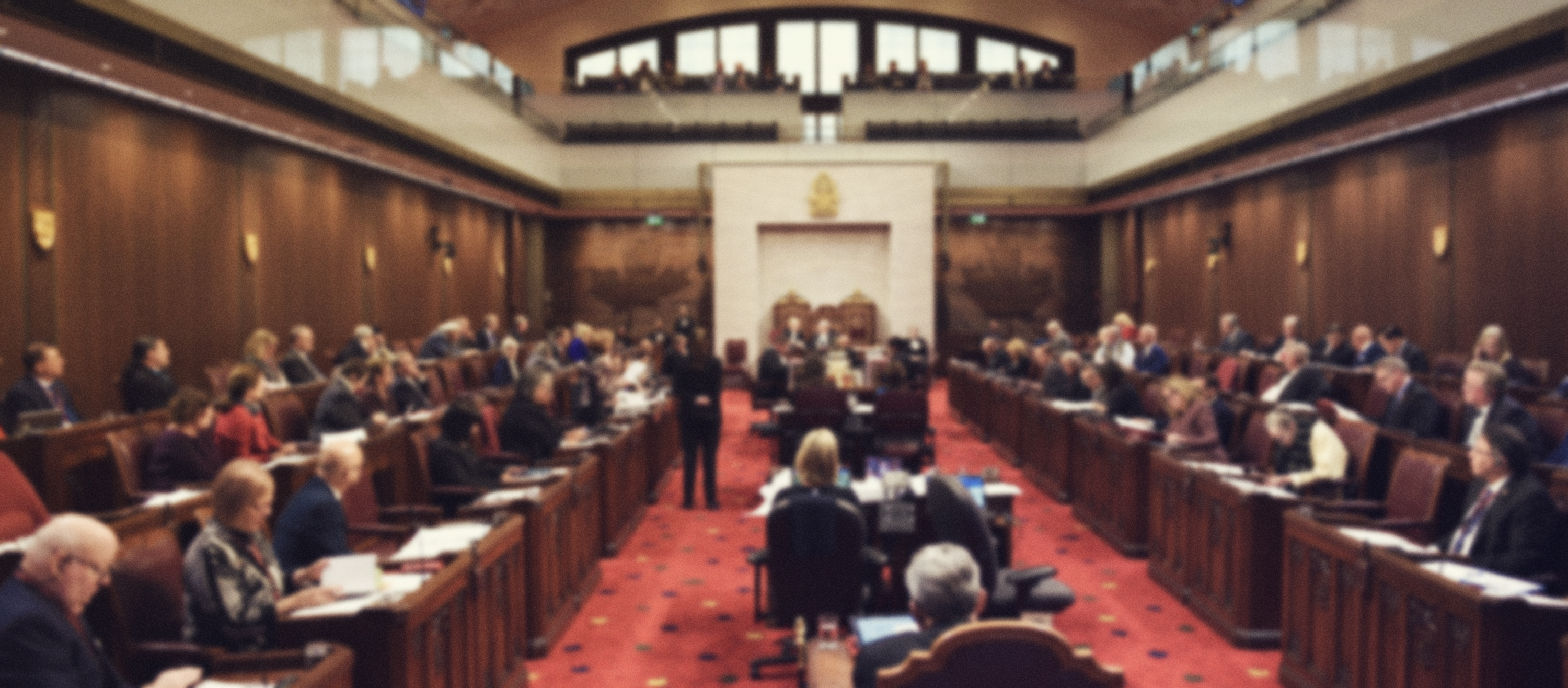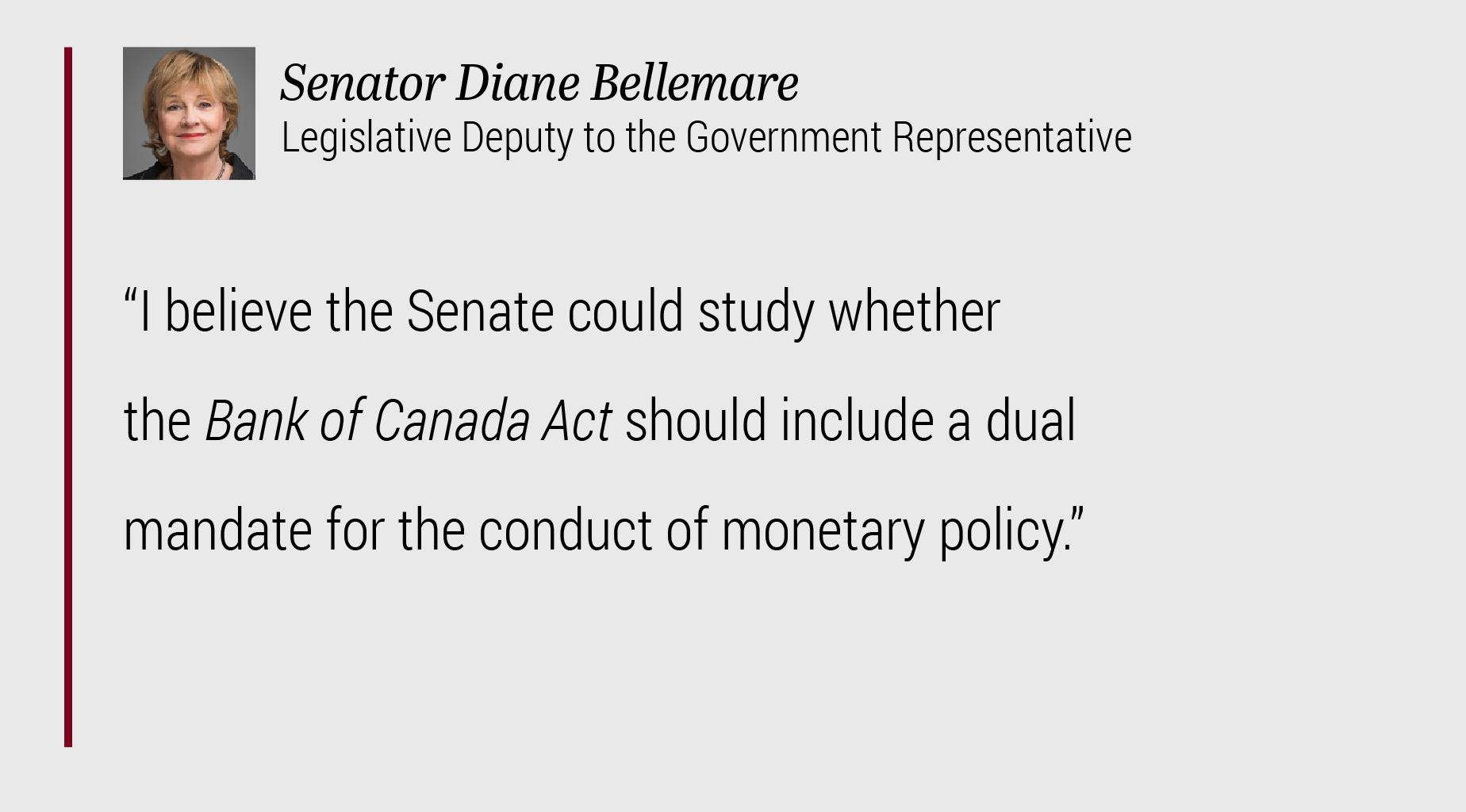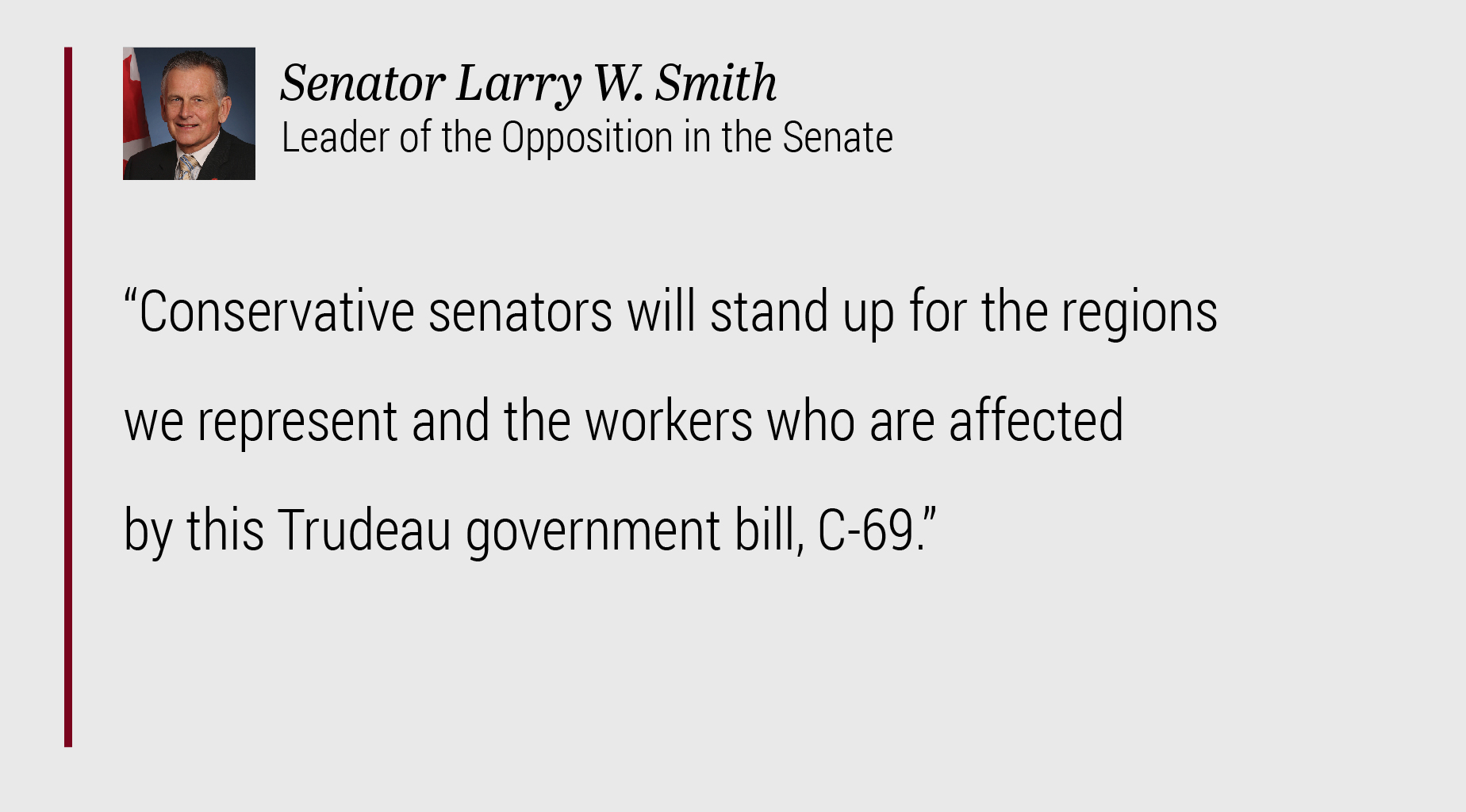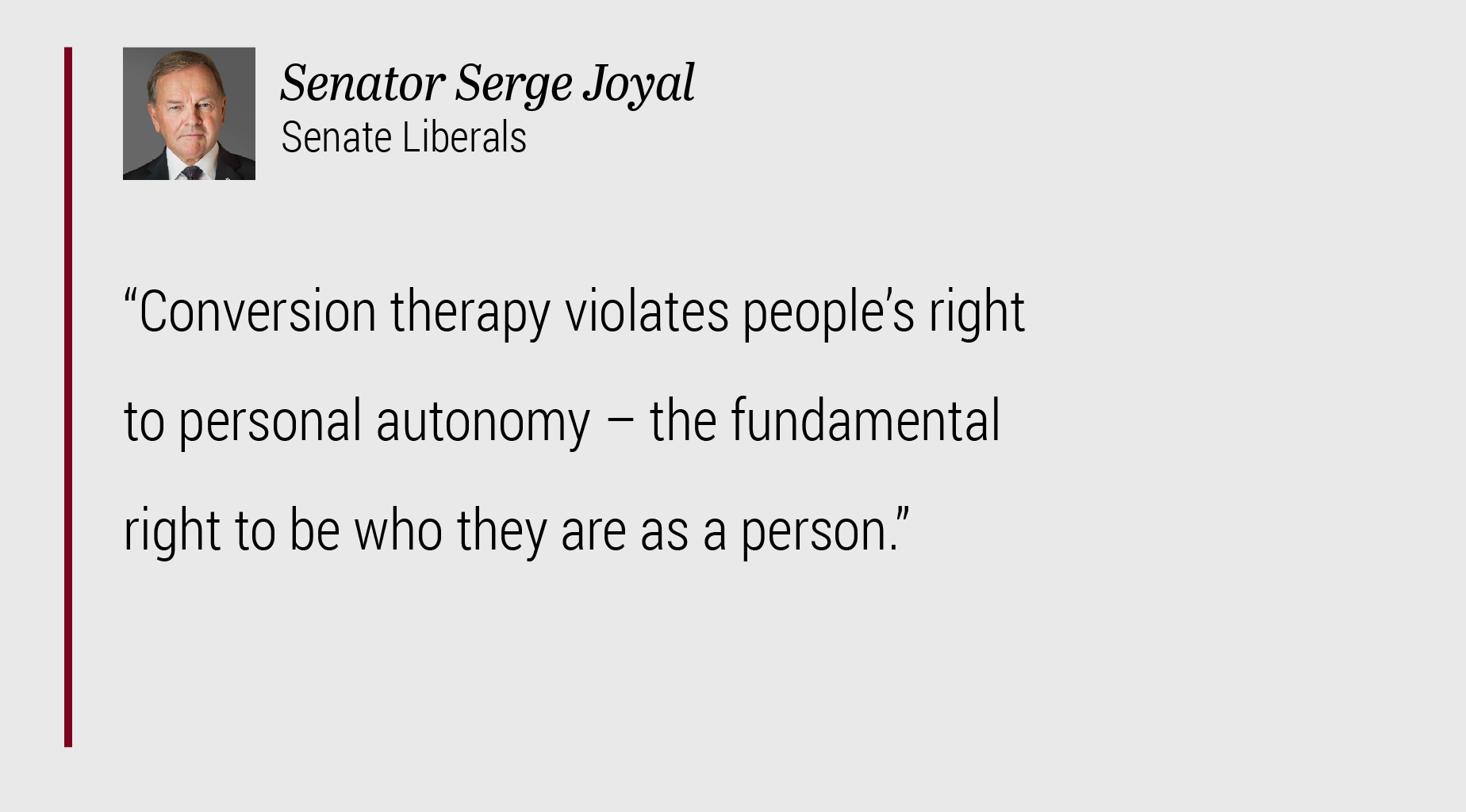Perspectives — May 7-9, 2019

Last week in the Senate: the Bank of Canada’s monetary policy, amending Bill C-69 and prohibiting the practice of conversion therapy.
Government
Inflation is not the problem it used to be in the past. Today, Canada faces many other economic issues such as the risks associated with slow growth, climate change, protectionism and increasing income inequality. Monetary policy can alleviate these pressing issues if the central bank pursues a dual mandate of full employment and price stability.
On Tuesday, April 30, I launched an inquiry on this subject in the Senate Chamber. The goal of full employment is an important one. It links social and economic objectives such as social justice and shared prosperity. Through this goal, Canada can respond to the challenges it faces. It is indeed the roadmap proposed by the United Nations 2030 Agenda on Sustainable Development.
This is why I share the view expressed in a letter signed by 61 Canadian economists asking the Minister of Finance to revise the Bank of Canada Act to specify that the Bank should pursue a dual mandate. It should also take into account the agreement signed between the Bank and the Government of Canada specifying the targets for monetary policy. As well, it should define how the Bank is accountable to Canadians and make explicit the boundaries of its operational independence.
I believe the Senate could study whether the Bank of Canada Act should include a dual mandate for the conduct of monetary policy just as the United States, Australia and more recently, New Zealand, are doing.
Opposition
Conservative senators fought hard to get the Senate Energy, the Environment and Natural Resources Committee outside of the Ottawa bubble, and hear from Canadians across the country about Bill C-69.
Now that testimony has been heard, it is clear that Bill C-69 is flawed legislation that threatens national unity.
The government must make substantial changes to the bill — small tweaks simply won’t do it. Conservative senators will stand up for the regions we represent and the workers who are affected by this Trudeau government bill.
The Senate will now do what it is supposed to do, which is proposing thoughtful amendments to make the bill better. In an attempt to be constructive and to help amendments be made in a timely basis, Conservatives put forward a proposal to adopt the amendments requested by provincial and municipal governments, as well as industry associations in the energy sector.
Adopting these well-researched proposals could have helped speed up the review process. Unfortunately, this approach was refused — as Trudeau-appointed senators didn’t agree. Senators from all sides have publicly stated that this bill has problems. Ultimately, changes will be put forward and hopefully the government will listen to what is said and accept these reasonable amendments.
Senate Liberals
Last week, I moved second reading of Bill S-260, An Act to amend the Criminal Code (conversion therapy). This bill would make it an offence to advertise conversion therapy services for consideration, and to obtain a financial or other material benefit for the provision of conversion therapy to a person under the age of 18.
This bill seeks to prohibit the practice known as conversion therapy. The bill defines it as any practice, treatment or service designed to change an individual’s sexual orientation or gender identity, or to eliminate or reduce sexual attraction or sexual behaviour between persons of the same sex. In other words, it means any practice that seeks to fundamentally change the identity of a person and turn that person into something he or she is not.
The Canadian Charter of Rights and Freedoms ensures that we are all entitled to the same measure of equality and dignity. But conversion therapy violates a person’s right to personal autonomy, to their physical and psychological integrity — the fundamental right of a person to be who he or she is. Conversion therapy contravenes a person’s right to self-determination. Conversion therapy can permanently harm a person and can destroy lives.
No parent, family members, community, tutor, teacher or any person in charge of a youth should try to change the nature of a person under the guise of the objective that the person should be brought to the alleged prevailing standards of normality.





